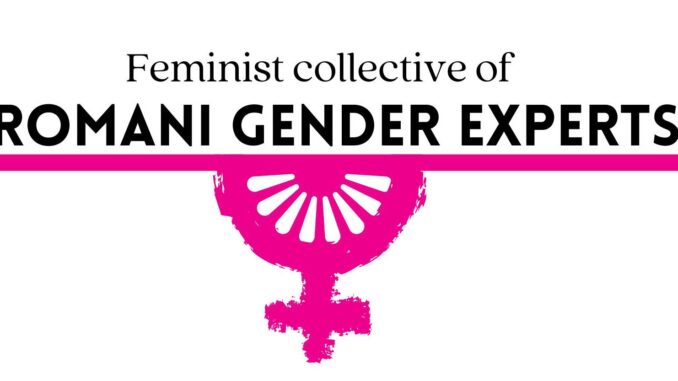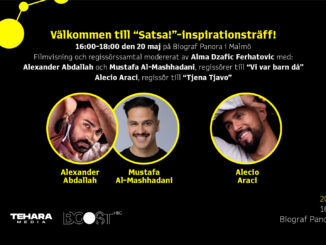
We wanted to form a group that aims to create knowledge from our unique perspectives, experiences, and insights as Romani feminists, countering the historically racist and sexist narratives constructed by non-Roma, but we also wanted a safe and inspiring space for Roma women professionals to learn from each other, were the words spoken by Marina Csikos, co-founder of the Feminist Collective of Romani Gender Experts at the group’s inaugural in-person meeting held in Budapest 24-26 March 2024.
| Text: Feminist Collective for Romani Gender Experts DIKKO finns på Facebook, Twitter, LinkedIn och Instagram |
Despite recent commitments from the European Union to promote gender equality and combat anti-Roma racism, Roma women remain the most vulnerable group in various European and non-European countries. A 2019 report by FRA on discrimination against Roma women in nine European countries found that they continue to experience the highest levels of discrimination. The intersection of their identities – gender, race/ethnicity, social economic status, sexual orientation, and religion – exacerbates the challenges they face, including extreme poverty and exclusion. The report highlights that Roma women fare worse than both the majority population of women and Roma men in areas such as education, employment, and health. These vulnerabilities often result in a lack of public and political participation for Roma women and perpetuate patriarchal and racist structures in society.
The Feminist Collective of Romani Gender Experts (FCRGE) initiative was born out of a desire to address the lack of representation of Romani women and gender equality professionals in public, political, and academic spheres. With a focus on promoting gender equality and advocating for the rights of Romani women, the Collective aims to empower Roma women to engage actively and meaningfully in society. Their projects are centred around education, healthcare, violence against women, and political representation. They also provide training to their members, by using their internal expertise and capacities in different fields of work promoting Roma women professionals, to enhance their skills and encourage their participation in decision-making processes. The Collective’s objective is also to contribute to the development of Roma feminism which encompasses the concerns of both genders, with a particular focus on issues faced by young individuals. Maria Dumitru, a member of FCRGE, emphasized that the battle against racism must be considered when forming and advancing Roma feminism.
During the first gathering, members expressed a strong sense of solidarity, sisterhood, inspiration, and collaborative spirit. Most of the time the Roma women want to be represented in decision-making and fund management, rather than being seen as beneficiaries of funding programs. However, out of the total of 20 members from countries like Spain, Romania, Bosnia and Herzegovina, Brazil, Serbia, United States, North Macedonia and Hungary, only 12 were able to attend. It is challenging for Roma women to gather at the national and international level due to a lack of funding targeting Roma women’s CSOs and feminist initiatives. We need funds that target Roma feminist collective and individual initiatives at the national and EU level to create space for Roma women and girls to develop and implement their feminist and antiracist strategies, said Marina Csikos.
The purpose of the meeting was to establish the values and priorities of FCRGE for the next five years. While online communication had helped to create a sense of community, meeting face-to-face to discuss ongoing initiatives strengthened the group and allowed for exchanging ideas, and sharing challenges and plans, said Alba Hernandez, co-founder, reflecting on this experience.
Among the themes that were discussed were the intersectionality of Roma and feminist struggles, anti-racism, as well as the empowerment of Roma women and girls, including Roma culture and Romani language in our work, addressing menstrual poverty and building more academic knowledge and data about Roma women and girls. The meeting also envisioned a preparation of its members, and two workshops with two feminist and expert facilitators were delivered. Overall, the meeting has met its goal, of establishing a stronger community, learning from its members, and building a stronger Roma feminist Collective.
Learn more about the Collective here
If you want to support the Feminist Collective for Romani Gender Experts, click here.
Follow their social media platforms: Facebook, Instagram, LinkedIn
redaktionen@dikko.nu
Att vara en oberoende tidning kostar pengar därför använder vi oss av crowdfunding. Det innebär att människor med små eller stora summor hjälper till att finansiera vår verksamhet. Magasin DIKKOs insamlingen sker via swish: 123 242 83 40 eller bg: 5534-0046
Vill du annonsera eller sponsra, synas eller höras i våra media?
Kontakta oss på redaktionen@dikko.nu eller ring 0768 44 51 61
IBAN: SE19 9500 0099 6042 1813 4395
BIC: NDEASESS




